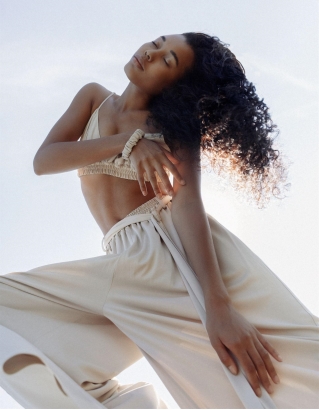
Fashion is looking for vegan options.
According to the survey “The raise of vegan fashion 2021”, the growing pressure from conscious shoppers on clothing brands is changing the face of the fashion industry: 95% of British fashion enthusiasts seek vegan options, while 90% of Gen X consumers are prepared to spend more for sustainable items. It’s no surprise they get a response from luxury brands: Gucci has launched a vegan leather alternative Demetra, and other luxury fashion giants like Hermès and Stella McCartney have introduced mycelium - mushroom-based - leather clothing.
However, although there is already a range of alternative leather options - from banana and mango skins - to leather made of food waste - silk is still widely used in luxury clothing, and the demand for it is continuously growing.
Will sustainable alternatives push silk out?
Approximately 6,000 silkworms are killed to produce 1 kg of silk by boiling them alive in their cocoons. It is also estimated that one silk shirt requires 376 liters of water, leaving a severe water footprint on the environment.
Fortunately, there are silk alternatives like Naia cellulosic fiber that provide the same luxurious feel without harming living organisms. Besides being vegan - sourced from pine and eucalyptus wood pulp - the manufacturing process is sustainable, recycling the solvents for reuse and leaving low carbon and water footprint. Another sustainable alternative is viscose.
Ph. Gretes, founded by Grėtė Švėgždaitė in Lithuania, is a boutique-style international brand. It focuses on creating handmade, fashionable, and high-quality sleepwear and loungewear, using sustainable Naia.